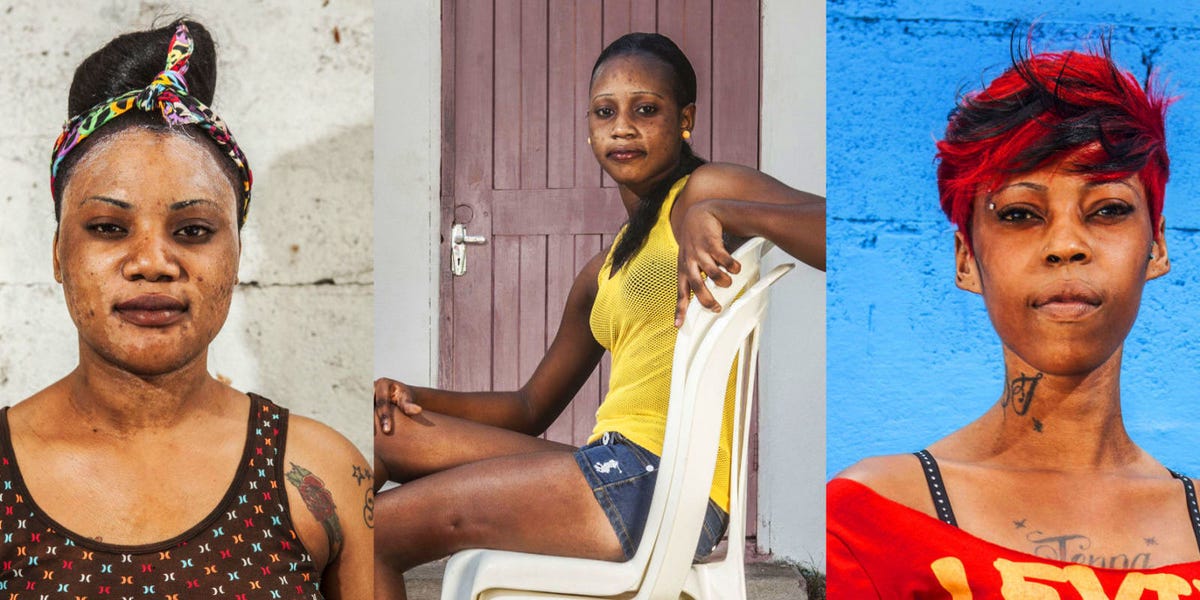By Rebekah Kebede, Photos By Marlon James
Jun 21, 2017
Outside her ground-floor apartment in Kingston, hairstylist Jody Cooper sits on the bright blue bench that serves as her makeshift salon. The 22-year-old native Jamaican is flipping through photographs of herself—there she is a few years ago in a studded monokini, with strawberry blonde hair and blue eyeshadow, her skin several shades lighter than it is now.
Cooper doesn't remember making a conscious choice to bleach her skin. Growing up, everyone around her was doing it—her school friends, her mom, her aunt. So she did it too. For nine years, she rubbed creams on her face and body, covering up with tights and long sleeves that she believed would make the bleach work better. Her goal was to transform into what Jamaicans call a "browning": a lighter-skinned black person.
As a browning, Cooper turned heads. "It's nice when the guys call after you saying, 'Browning!' and you know you born black," she says, laughing. She loved the attention; she loved fooling people into thinking she was someone a little bit different.
Payne Land—where Cooper grew up and still lives to this day—is one of the lower-income neighborhoods in the city, a collection of mid-rise cinder-block apartment buildings at Kingston's southern edge, bordered by the industrial and manufacturing district near the port. Black cultural icons Bob Marley and Marcus Garvey called this neighborhood home, too, but even still, it's light skin that's perceived by many here to be the ideal.











